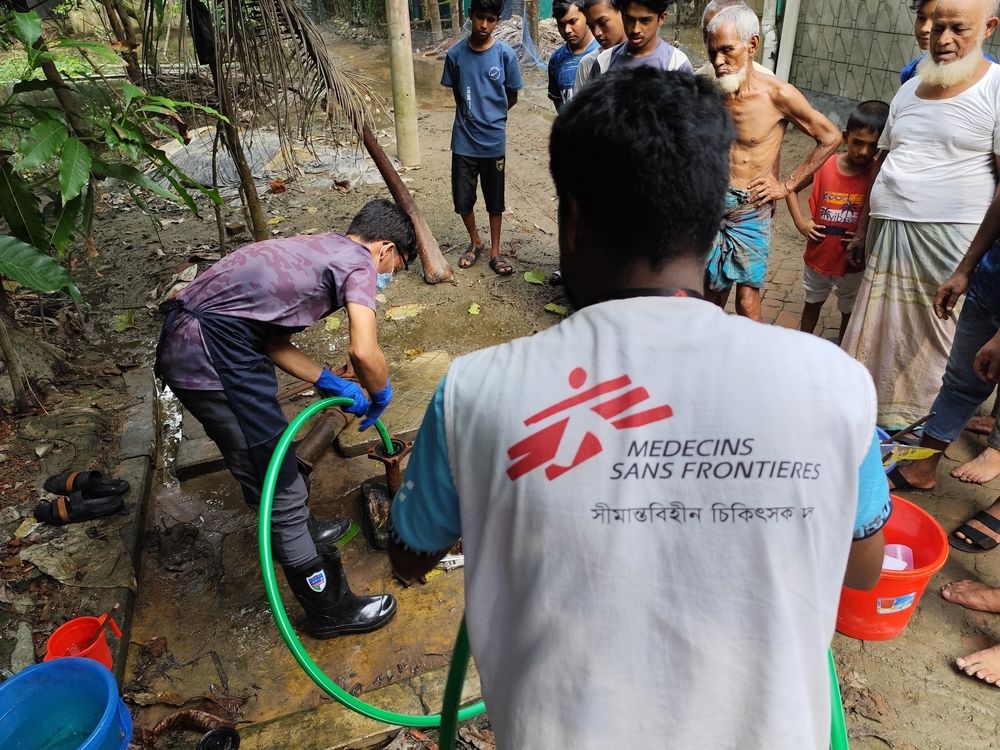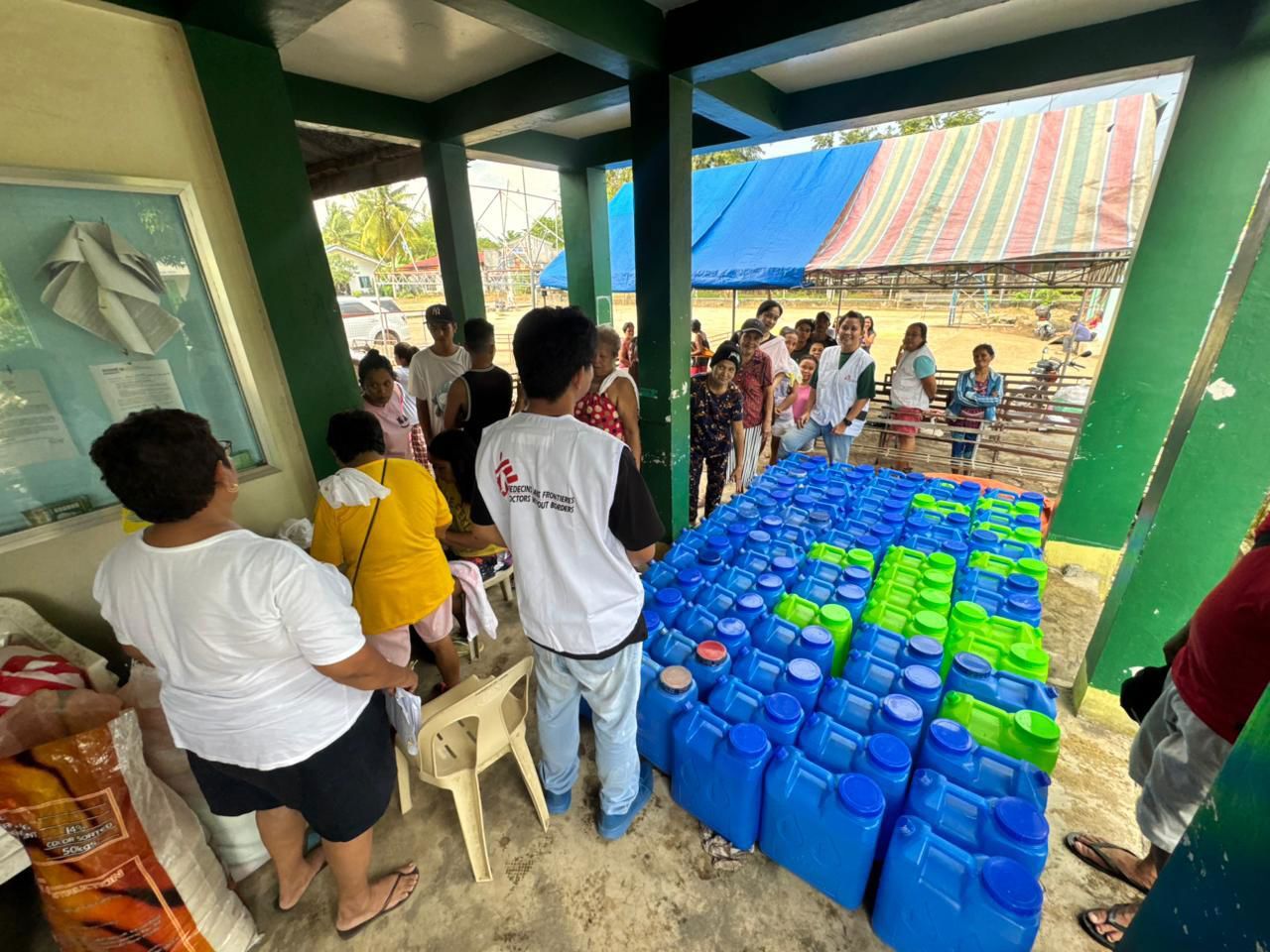“During the devastating flood, roads were damaged, houses were under water, and main water sources were interrupted hindering access to clean and safe drinking water,” said Javed, a local from Maijdee, Noakhali.
“My house was saved from flood water. However, the main road, our paddy fields and pond has been submerged in water. I lost hundreds of thousands of assets. The loss was not mine alone, rather the entire village was affected in many ways.”
In response to this emergency situation, MSF teams, in coordination with local authorities, volunteers and partners, focused on addressing the urgent medical needs caused by widespread water contamination and the destruction of local infrastructure.
“Our team saw increased numbers of patients with acute watery diarrhoea in Noakhali 250-bed General Hospital. During the initial stage of the response, the medical team were struggling to cope with the daily admissions. The existing healthcare staff simply couldn’t handle the sudden spike of diarrhoea cases, and we were concerned that this situation could pose further risk to people’s health due to the contamination within the hospital,”
Dr Pankaj Paul, MSF Bangladesh deputy medical coordinator.
Between 5 September and 4 October, the MSF team treated 1,946 patients for acute watery diarrhoea in the 250-bed Noakhali General Hospital in Maijdee, where more than 63% of the cases were children and 37% were adults. Throughout the intervention, MSF also distributed 1,000 non-food item kits, which included mosquito nets, hygiene products and other essentials, to families in Kabirhat upazila. In addition, MSF also recruited 2 health promoters, 2 medical doctors, 6 nurses and 24 cleaners to ensure proper medical care and hygiene at the hospital. 154 health promotion sessions were conducted in the hospital, helping to raise awareness about hygiene and disease prevention among flood-affected communities.
MSF's water and sanitation team disinfected over 1,300 deep tubewells across the Noakhali and Feni districts and provided training to 45 local volunteer teams to continue this vital work of disinfecting tubewells, ensuring safe and clean drinking water for flood-affected communities.
MSF closed the emergency intervention on 4 October and has handed over the intervention to the Bangladesh Ministry of Health. However, we remain committed to supporting national and local authorities in Bangladesh when natural disasters arise, as we continue to work in Cox’s Bazar and in Dhaka.



